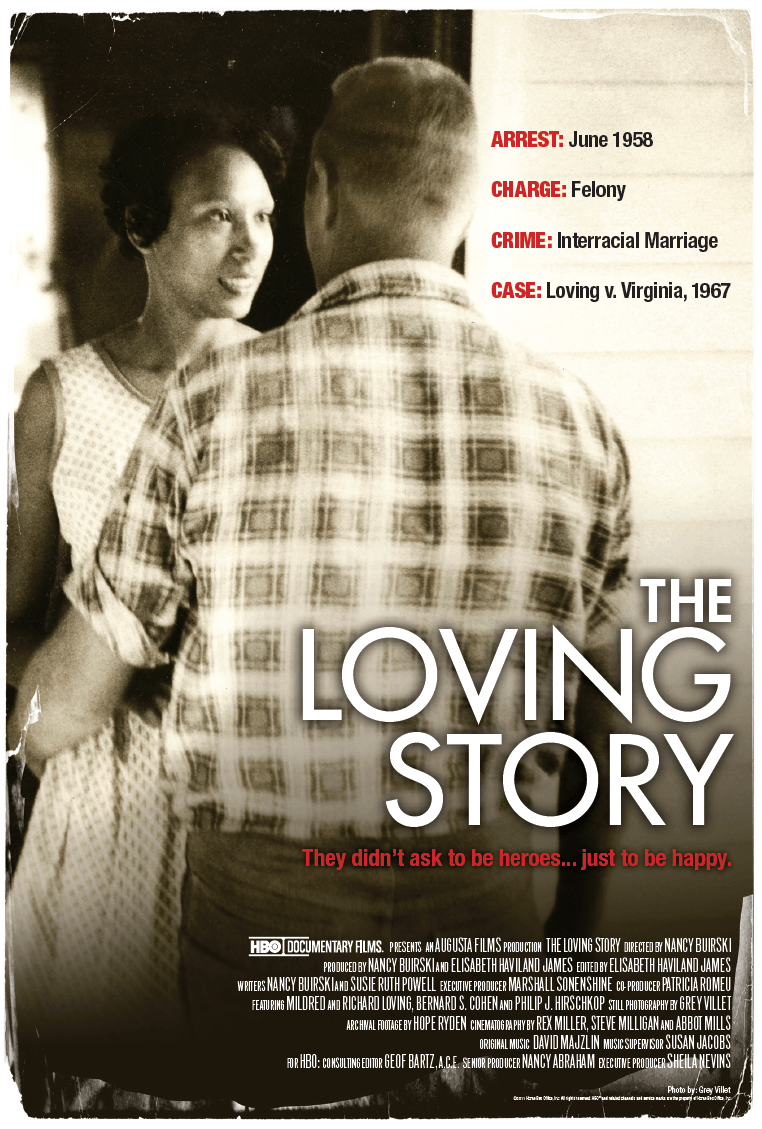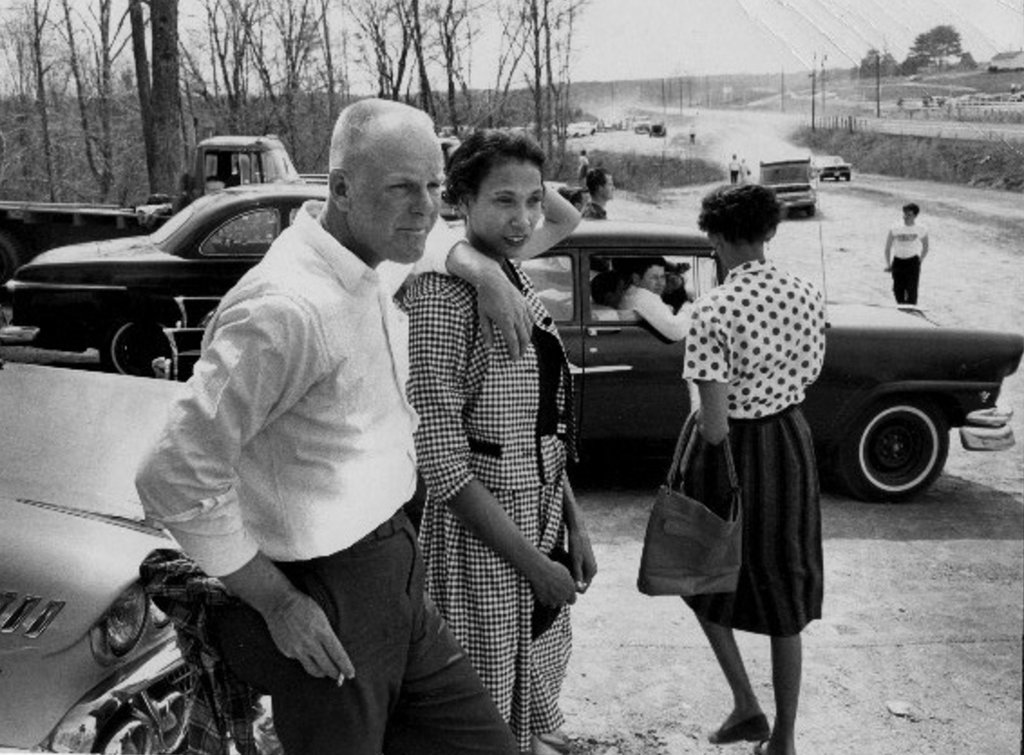For this weeks edition of Doc Corner we are celebrating the release of Jeff Nichols' Loving by looking back at the documentary that was quite clearly a heavy inspiration on it.
 That Richard and Mildred Loving often got overlooked for their unwilling but necessary part in the civil rights movement is hardly surprising when you watch The Loving Story, Nancy Buiski’s sober and low-key documentary from 2011. The pair, quiet and dignified, do not make for the sort of protagonists that make traditional narratives – a comment that has come up throughout the festival release of Jeff Nichols’ feature adaptation. Theirs is a story of quiet suffering; their victory an almost anticlimactic ‘duh’ moment that it’s easy to see why it has taken so long to get films made about them.
That Richard and Mildred Loving often got overlooked for their unwilling but necessary part in the civil rights movement is hardly surprising when you watch The Loving Story, Nancy Buiski’s sober and low-key documentary from 2011. The pair, quiet and dignified, do not make for the sort of protagonists that make traditional narratives – a comment that has come up throughout the festival release of Jeff Nichols’ feature adaptation. Theirs is a story of quiet suffering; their victory an almost anticlimactic ‘duh’ moment that it’s easy to see why it has taken so long to get films made about them.
But it is that very reserved nature that makes their story equally compelling. Mildred, especially, is a woman whose soft-spoken nature so often goes unseen by storytellers throughout moments of great historical upheaval. Buiski’s film doesn’t try to pad it out with flash and narrative diversions. Instead it lets the humanity of its story and the relevance of its themes permeate across wisely assembled talking heads (including the couple’s only surviving child, Peggy) and a treasure trove of fascinating archival footage, newsreels, and family photographs that makes up the bulk of the film’s short yet resourceful runtime.

The entire story of the Loving v Virginia case holds relevance today in the face of race and same-sex marriage. Their story is one of barbaric cruelty where they were subjected to being woken up in the middle of night with flashlights in their faces, their relationship opened up to the inspection and scrutiny of hate-filled bigots in positions of power.
Even the initial judge in their state case (if my reading of history is correct) said at the time “Almighty god created the race. White, black, yellow, malay and red, and he placed them on separate continents. And, but for the interference with his arrangement there would be no cause for such marriages. The fact that he separated the races shows that he did not intent for the races to mix" before suspending their sentence on the order that they leave the state of Virginia. These words open The Loving Story as if to shock audiences right out the gate before recoiling back and letting the Lovings themselves do the talking.
Thanks to the plethora of footage of the couple, this is exactly something that they are allowed. It is the film’s strong determination to not misrepresent this couple and that is what helps makes The Loving Story such a success. It would be easy to frame the landmark court case that put them in law journals alongside the more general civil rights movement. It would be easy to make the film a grandiose sweeping tale of love and justice prevailing in the face of racism and hate. It would have been easy to turn this into a sweeping courtroom narrative. But this is instead a film that, like its subjects, prefers its silences to remain so. This is a modest film about modest people, and by allowing its subjects that dignity, the film, too, is all the stronger. This is a film about the Lovings, as simple as that.
Where to Watch: Currently streaming on HBO platforms.